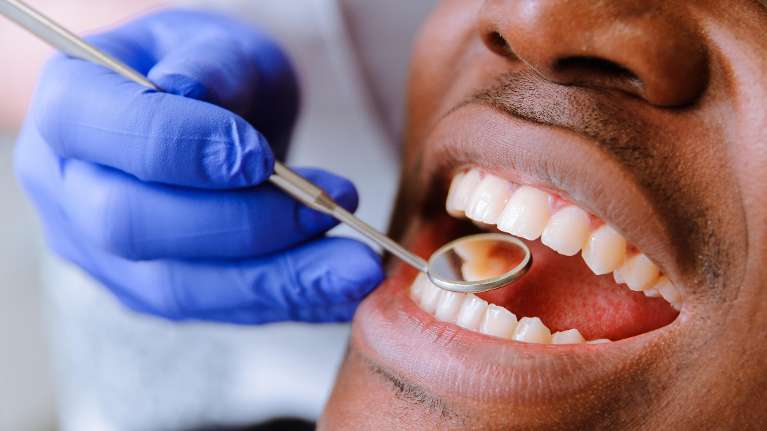
While most of us clean our teeth on a regular basis, we don't usually pay much heed to flossing. With so many people overlooking this important aspect of dental hygiene, the question is: what happens if you don't floss? Quite a bit, it turns out. Continue reading to learn why flossing is so crucial for your teeth, gums, and overall health.
Bleeding Gums
Healthy gums do not bleed. Plaque is a bacteria-infested film that can form all over your mouth. Plaque builds up along the gum line when you don't floss. Inflamed gums are more prone to bleeding as a result of this.
Gingivitis, a type of gum disease characterised by swollen and sensitive gums that might develop if you don't floss. Flossing on a regular basis and maintaining proper dental hygiene can help resolve this issue. Gingivitis might become irreparable if you continue to neglect gum health.
Build-up of Tartar
Tartar and plaque are not the same things, despite the fact that they are often used interchangeably. When you don't floss, both issues can build up.
Plaque that has hardened is known as tartar. It's quite difficult to get rid of. You will have to visit your dentist to get rid of tartar and plaque. However, the issue can be avoided by regular flossing.
Breath Problems
Halitosis is the medical term for bad breath. When you don't floss, the problem gets worse. Food particles that are left in your mouth are broken down by bacteria, which subsequently produces sulphur compounds. These compounds are the source of mouth odour. By including flossing into your everyday practice, you can significantly reduce the odour.
Loose Teeth
Bacteria builds up in your mouth if you don't floss. This may not appear to be a serious problem, but it can lead to early tooth loss or decay. Bacteria are recognised by your body as alien substances that must be dealt with. Therefore, the body triggers an inflammatory response. While your body is trying to help, the inflammatory reaction has negative consequences for your dental health. The fibres and collagen that hold your teeth together break down, causing your teeth to become loose and fall out.
Chronic Illness
Other aspects of your health may suffer as a result of not flossing. For instance, you may develop a slew of other health issues, including heart disease, dementia, and weight gain due to poor gum health. In addition, those who do not floss are also more likely to get diabetes.
Cavities are more likely to occur.
Cavities can develop if plaque is not removed by flossing. Carbohydrates and sugars left on the teeth can lead to serious tooth rot. Bacteria tries to digest these food particles, turning them into acidic plaque fragments. Plaque eats away at tooth enamel, resulting in an unattractive hole in your tooth, often known as a cavity. Flossing on a regular basis will help to keep your teeth in good shape.
Most people brush their teeth twice a day, once in the morning and once at night. The necessity of brushing one's teeth has been imprinted in our minds since childhood. However, we often overlook flossing. Not flossing can lead to serious health problems that risk your well-being.
For more details, please contact us.



